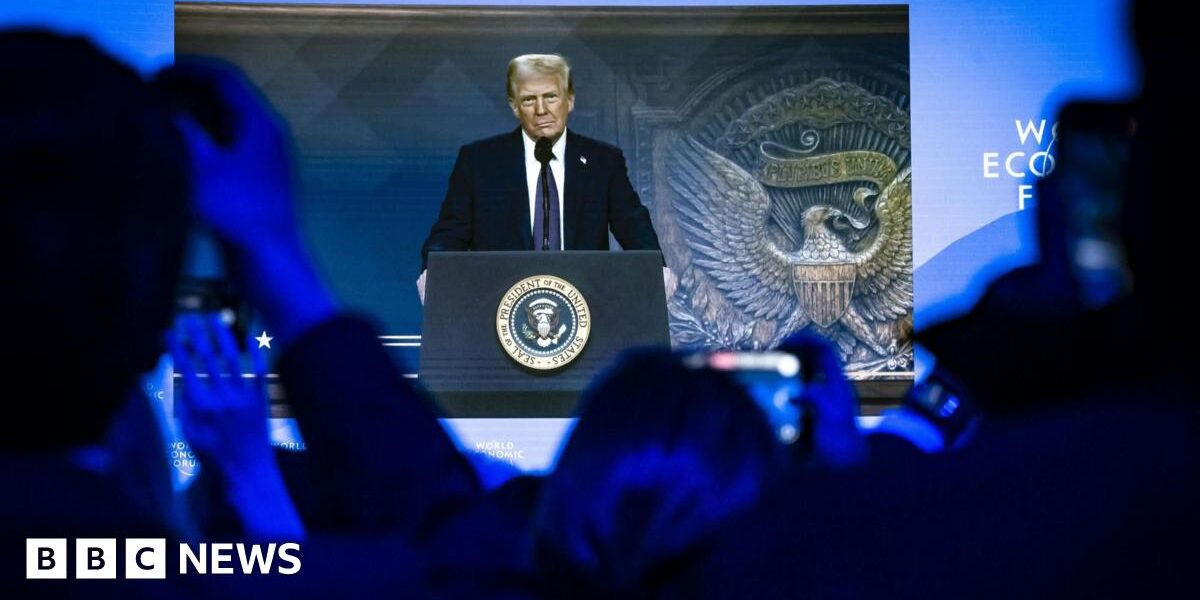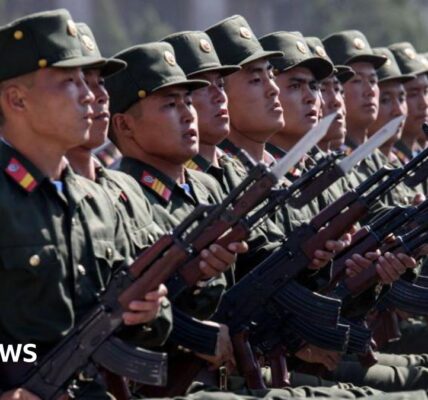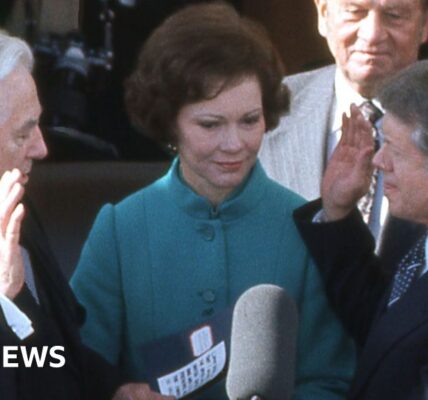While he charmed, almost seduced the audience with a credible picture of a booming US economy about to scale new technological heights, he simultaneously menaced with threats of tariffs to those who did not choose to shift their factories into the US.
Trillions of dollars of tariffs for the US Treasury for those businesses exporting into the US market from foreign factories.
“Your prerogative” he said, with a smile not out of place in a Godfather movie. And then for one of his own, the Bank of America chief Brian Moynihan, a remarkable public lashing accusing the lending giant of “debanking” many of his conservative supporters.
He awkwardly mumbled about sponsoring the World Cup.
In this first week of his second term, most people at Davos were nodding along, as they cannot think what else to do, just yet.
Two worlds colliding, as the ‘America First’ President was beamed in like a 30-foot interplanetary emperor, into the beating heart of the rules-based international economic order.
It is one thing suggesting that trade deficits are a problem with your domestic electorate. It is quite another to suggest at an internationalist forum that a G7 ally, Canada, become a state of your nation, eliciting gasps in the audience, and not just from Canadians.
The address was, by design, charming and offensive. There was carrot and stick for the rest of the world.
As delegates absorbed the mix of threats, invites and on occasion, praise, many appeared to be trying to decide just how much Trump might damage the global trading system, whilst assessing just how far ahead his America is getting in this tech driven AI boom.
Davos has been for this first week the alternative pole of the Trump second term.
There was a coherence to his agenda to use every means to drive down energy prices including by pressurising the Saudis on oil.
This he said would not just help to lower inflation, but also drain Russia’s war coffers of oil dollars to help end the Ukraine war, by economic means. The ceasefire in the Middle East has already bought Trump some geopolitical credibility in these circles.
Christine Lagarde, David Miliband, and John Kerry shuffled into the hall. Various bank chiefs assembled on stage to praise and then lightly question the President.
The bottom line was this: Is president Trump serious about what sounded like campaign trail threats to the world economic system? The answer will reverberate for the next four years and beyond.
The answer sounded like a most definitely, yes. However, this does not mean it is going to work.
Some leading US CEOs told me that they were preparing for tit-for-tat retaliatory tariffs to be applied to their exports. Their assumption was that the President’s love of a rising stock market would restrict his deployment of tariffs.
But no one really knows. In any event, much is up for grabs. He has already withdrawn from the World Health Organisation.
In the promenades the whisper was of his Project 2025 allies suggesting US withdrawal from the IMF and the World Bank too.
The rest of the world does have some counter leverage, once it decides to get back up after the Trump whirlwind.





